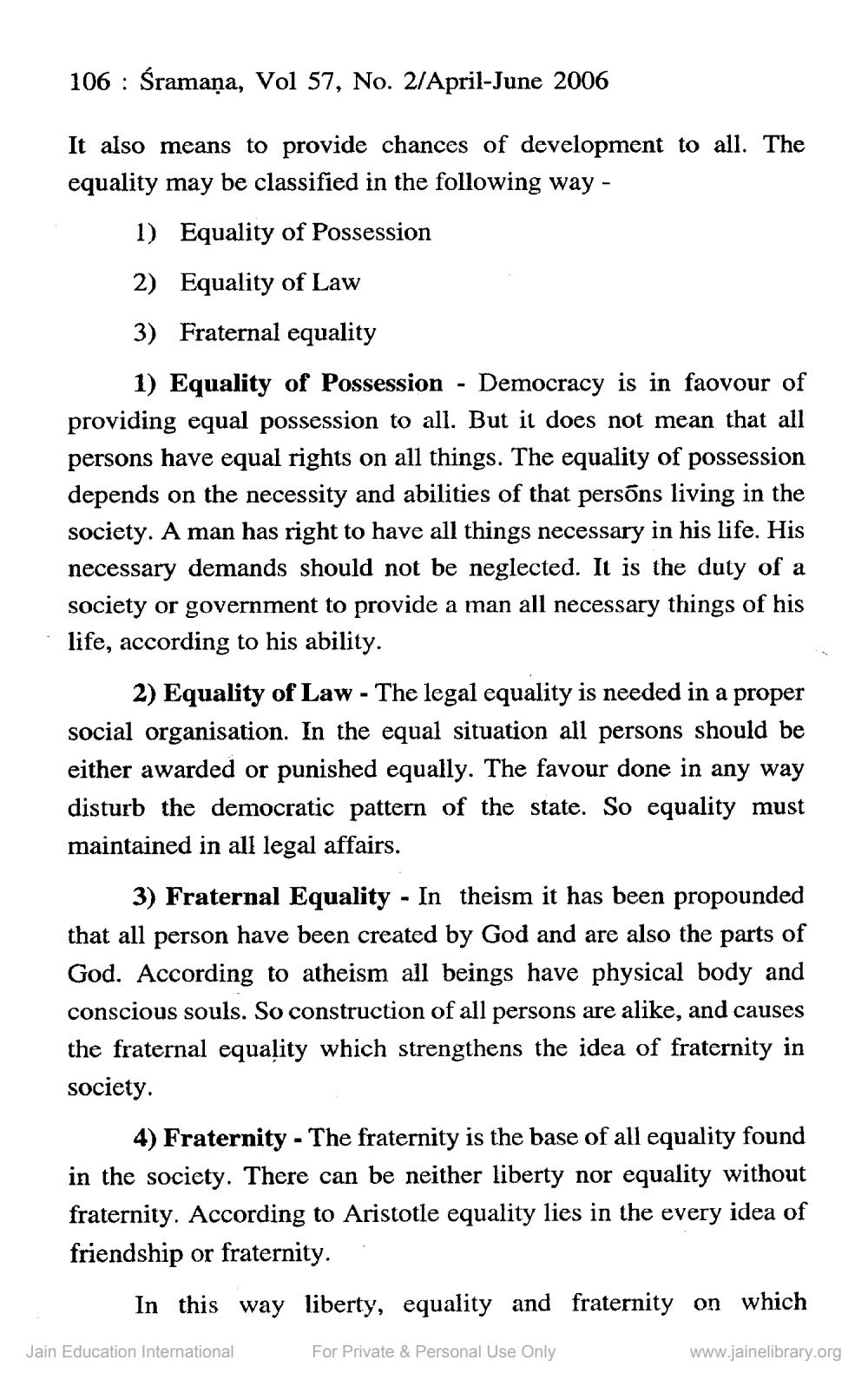________________
106 : Śramaņa, Vol 57, No. 2/April-June 2006
It also means to provide chances of development to all. The equality may be classified in the following way -
1) Equality of Possession 2) Equality of Law 3) Fraternal equality
1) Equality of Possession - Democracy is in faovour of providing equal possession to all. But it does not mean that all persons have equal rights on all things. The equality of possession depends on the necessity and abilities of that persons living in the society. A man has right to have all things necessary in his life. His necessary demands should not be neglected. It is the duty of a society or government to provide a man all necessary things of his life, according to his ability.
2) Equality of Law - The legal equality is needed in a proper social organisation. In the equal situation all persons should be either awarded or punished equally. The favour done in any way disturb the democratic pattern of the state. So equality must maintained in all legal affairs.
3) Fraternal Equality - In theism it has been propounded that all person have been created by God and are also the parts of God. According to atheism all beings have physical body and conscious souls. So construction of all persons are alike, and causes the fraternal equality which strengthens the idea of fraternity in society.
4) Fraternity - The fraternity is the base of all equality found in the society. There can be neither liberty nor equality without fraternity. According to Aristotle equality lies in the every idea of friendship or fraternity.
In this way liberty, equality and fraternity on which
Jain Education International
For Private & Personal Use Only
www.jainelibrary.org




